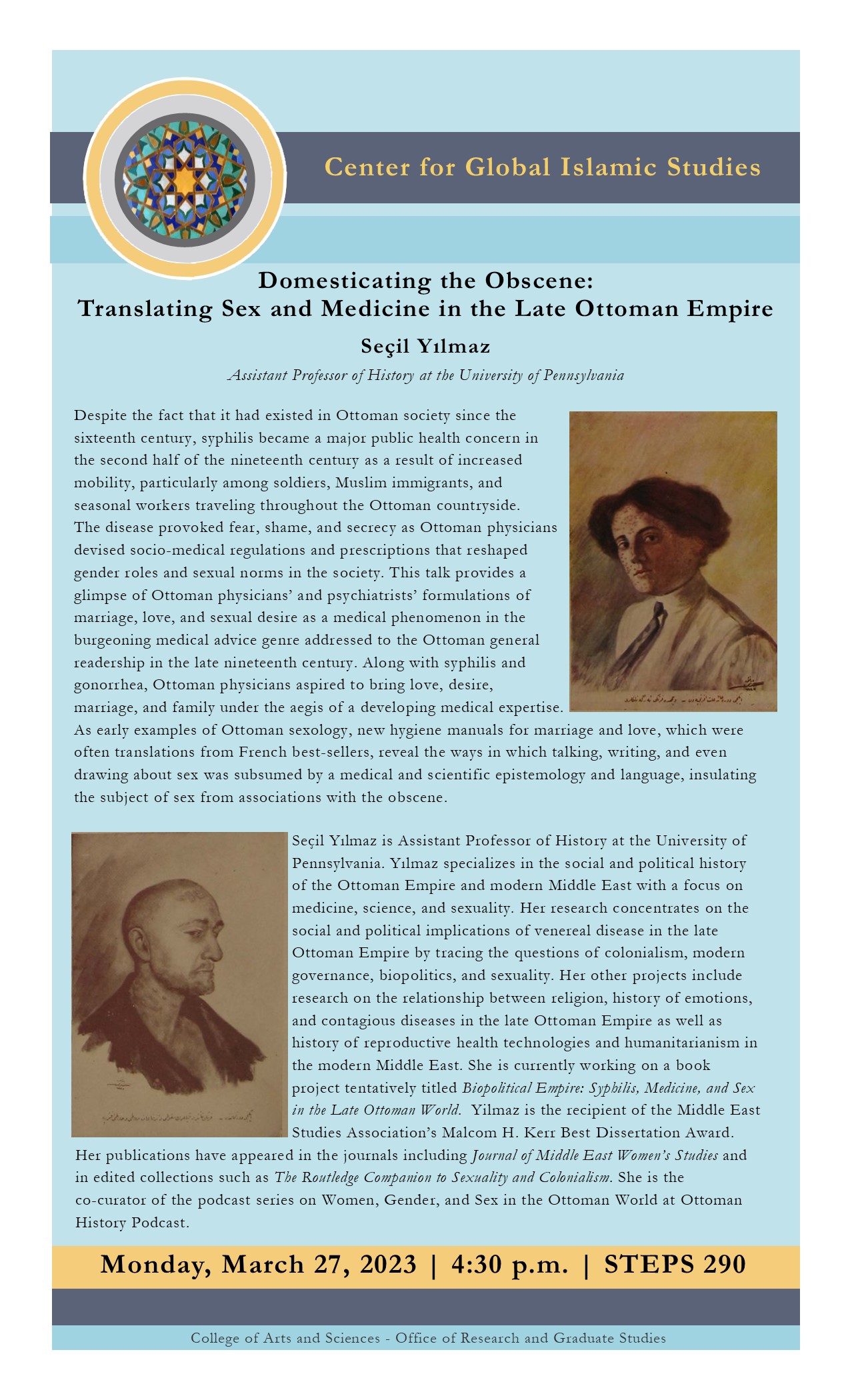Date:
Monday, March 27, 2023 - 4:30pm
STEPS 290
Domesticating the Obscene: Translating Sex and Medicine in the Late Ottoman Empire
Seçil Yılmaz
Assistant Professor of History at the University of Pennsylvania
Despite the fact that it had existed in Ottoman society since the sixteenth century, syphilis became a major public health concern in the second half of the nineteenth century as a result of increased mobility, particularly among soldiers, Muslim immigrants, and seasonal workers traveling throughout the Ottoman countryside. The disease provoked fear, shame, and secrecy as Ottoman physicians devised socio-medical regulations and prescriptions that reshaped gender roles and sexual norms in the society. This talk provides a glimpse of Ottoman physicians’ and psychiatrists’ formulations of marriage, love, and sexual desire as a medical phenomenon in the burgeoning medical advice genre addressed to the Ottoman general readership in the late nineteenth century. Along with syphilis and gonorrhea, Ottoman physicians aspired to bring love, desire, marriage, and family under the aegis of a developing medical expertise. As early examples of Ottoman sexology, new hygiene manuals for marriage and love, which were often translations from French best-sellers, reveal the ways in which talking, writing, and even drawing about sex was subsumed by a medical and scientific epistemology and language, insulating the subject of sex from associations with the obscene.
Seçil Yılmaz is Assistant Professor of History at the University of Pennsylvania. Yılmaz specializes in the social and political history of the Ottoman Empire and modern Middle East with a focus on medicine, science, and sexuality. Her research concentrates on the social and political implications of venereal disease in the late Ottoman Empire by tracing the questions of colonialism, modern governance, biopolitics, and sexuality. Her other projects include research on the relationship between religion, history of emotions, and contagious diseases in the late Ottoman Empire as well as history of reproductive health technologies and humanitarianism in the modern Middle East. She is currently working on a book project tentatively titled Biopolitical Empire: Syphilis, Medicine, and Sex in the Late Ottoman World. Yilmaz is the recipient of the Middle East Studies Association’s Malcom H. Kerr Best Dissertation Award. Her publications have appeared in the journals including Journal of Middle East Women’s Studies and in edited collections such as The Routledge Companion to Sexuality and Colonialism. She is the co-curator of the podcast series on Women, Gender, and Sex in the Ottoman World at Ottoman History Podcast.

